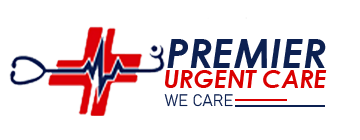
MOTOR VEHICLE ACCIDENTS

Survivors of car accidents may experience the following injuries:
-
Whiplash
-
Muscle sprains
-
Scrapes and cuts
-
Concussion
-
Brain damage
-
Broken ribs and internal injuries
-
Bruises
-
Broken bones
-
Traumatic brain injury
-
Internal bleeding
-
Spinal injuries
-
Disc injury and dislocation
-
Infection
-
Neck of skull fracture
-
Burns and lacerations
-
Crush injury
-
Nerve damage
-
Scars
-

After an accident, survivors may experience the following symptoms:
-
Soreness
-
Back or neck pain
-
Delayed-onset headache
-
Loss of consciousness
-
Changes in personality
-
Unexplained tiredness
-
Memory and focus issues
-
Impaired sense of smell or taste
-
Eyesight issues (blurred vision, sensitivity to light)
-
Sleep disturbance
-
Depression
-
Difficulty hearing
-
Chronic exhaustion
-
Nausea
-
Fatigue
-
Abdominal pain
-
Tingling
-
Numbness
-
Loss of sensitivity
-
Difficulty with coordination and movement
-
Weakness
-
Impaired range of motion
-
Paralysis
No two car accidents are identical and survivors experience a diverse range of symptoms and injuries. Some survivors don’t experience immediate symptoms and choose to avoid or delay medical intervention. However, some injuries are not easily visible and require medical exams to identify. An evaluation from an experienced health professional will identify hidden injuries and help survivors prevent long-term health issues caused by untreated injuries.
-
Survivors of motor vehicle accidents often experience chronic pain as a result of their injuries. At Premier Urgent Care, patients can experience lasting pain relief and begin their recovery after treatment with injections and pain management techniques.
A few types of joint and soft tissue injections offered at the clinic include nerve blocks, epidural injections, piriformis injections, sacroiliac joint injections, and trigger point injections. Patients should speak to their physician to find out if they are a good candidate for joint and soft tissue injections.
Pain management techniques can help patients minimize pain through cold and heat therapy, gentle exercise, physical therapy, massage, acupuncture, cognitive behavior therapy, yoga, deep breathing exercises, progressive muscle relaxation, biofeedback, music therapy, and nonsteroidal anti-inflammatory medication. Depending on the location and type of pain, patients will receive a customized pain management plan.
Severe injuries, such as broken bones, brain damage, and internal bleeding may require advanced treatment that may include chiropractic adjustment, physical therapy, and even surgery. Premier Urgent Care supports patients needing a range of treatments. Staff is available to answer any questions about obtaining advanced treatment.
Motor vehicle accidents lead to a wide range of injuries that could take weeks or even years to recover from. It’s important to seek immediate medical attention to minimize the risk of long-term illness and ensure a quick recovery.
